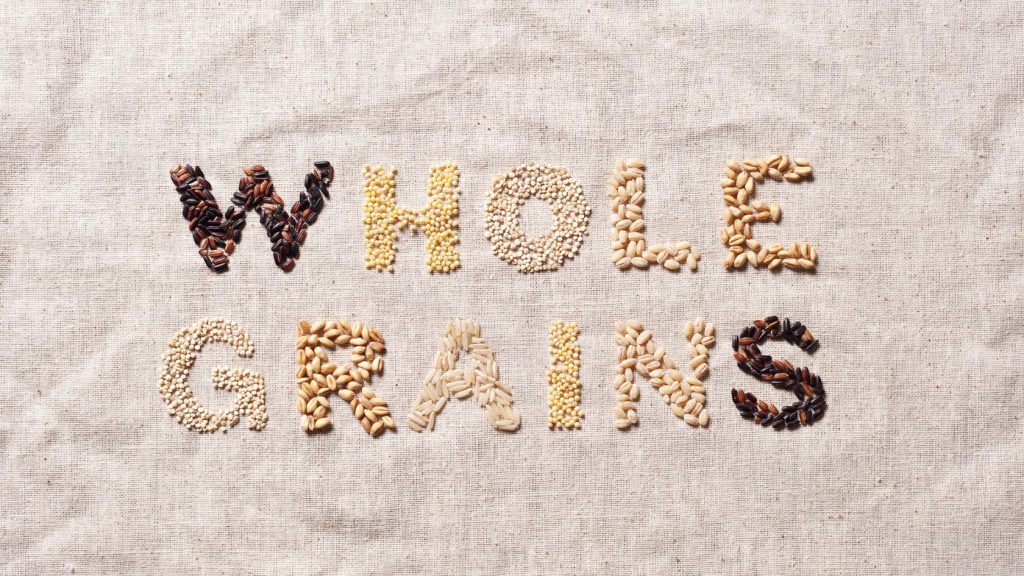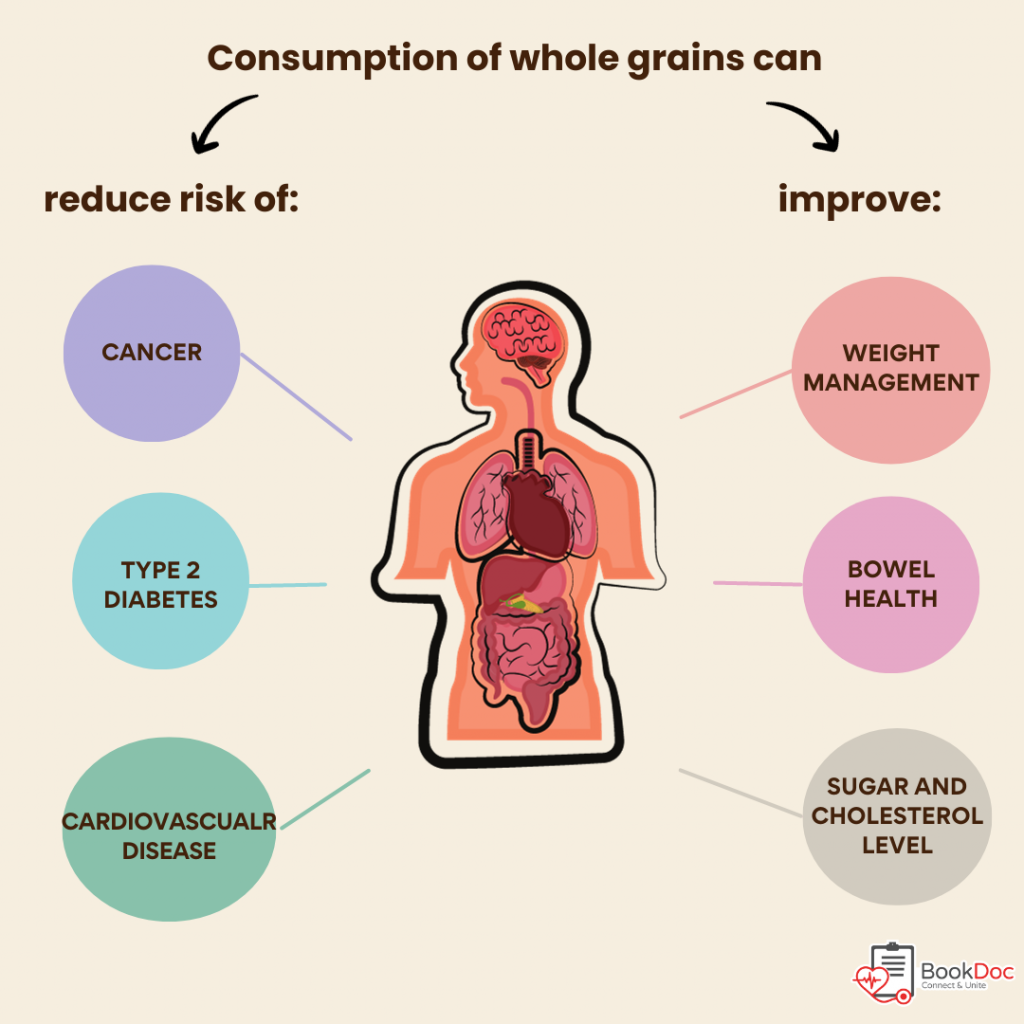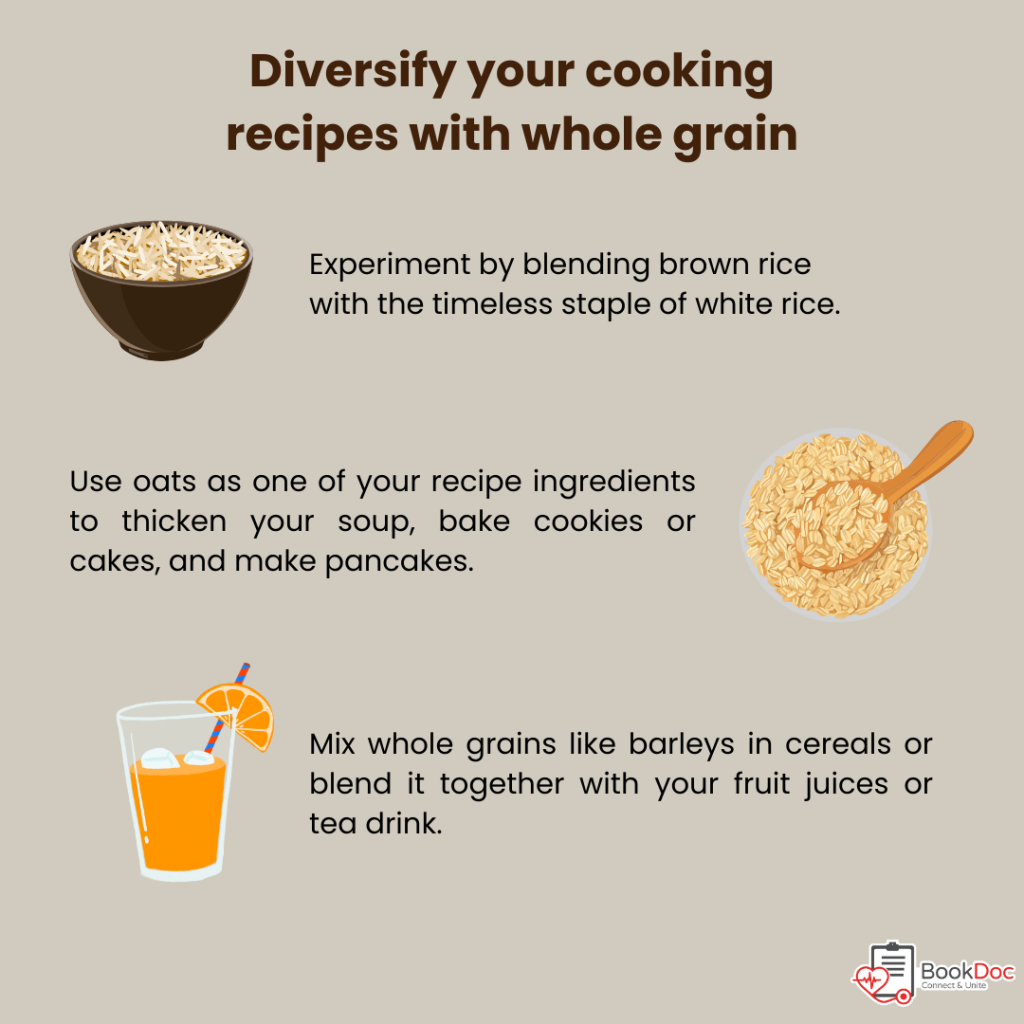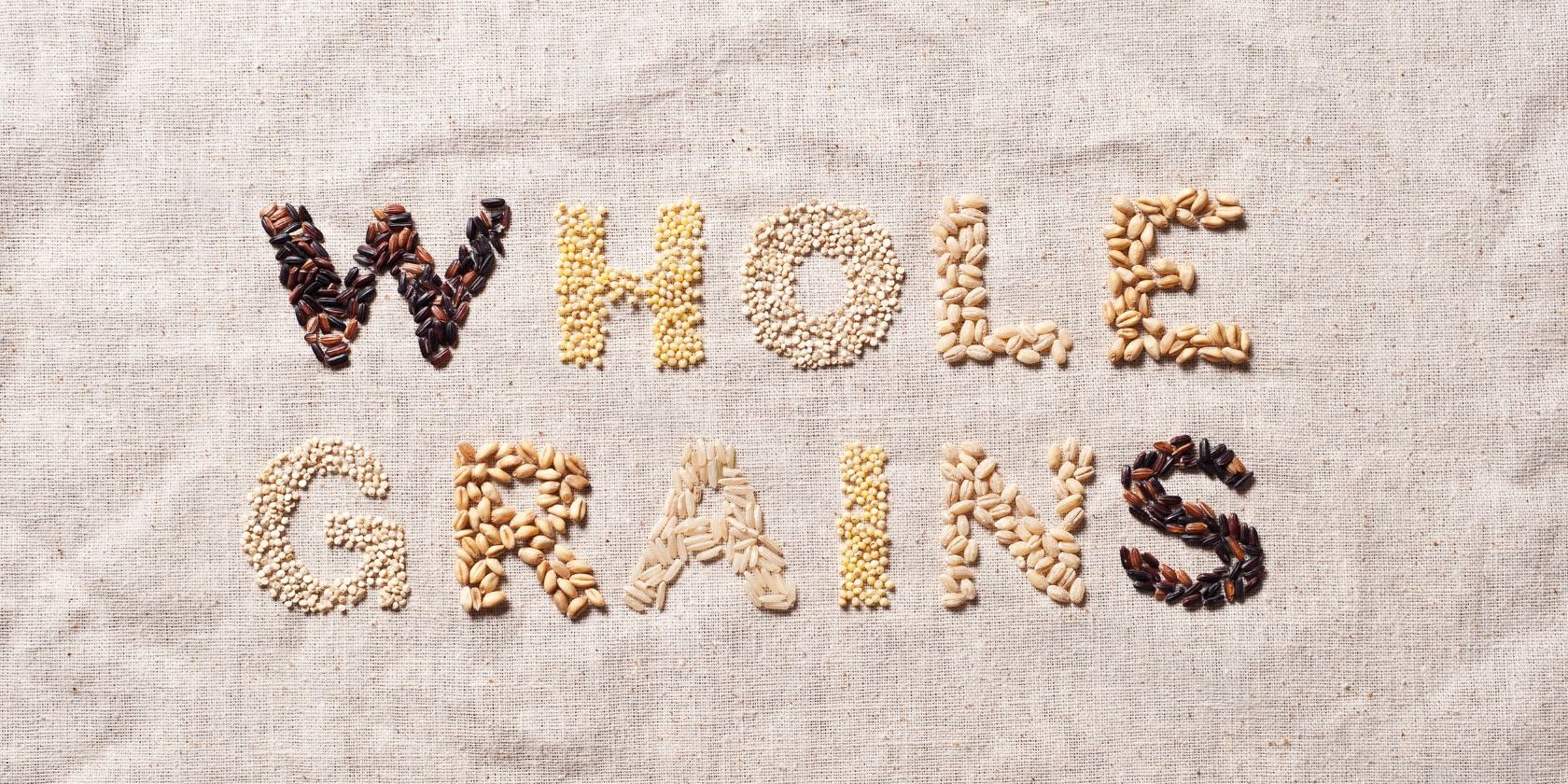
Throughout human history, grains have been known as a staple food essential for human nutrition. One of the most widely consumed grains in our country and across Asia is rice. Rice and many other grains fall under the carbohydrates food group, the crucial macronutrient our body needs to supply adequate energy for daily living. While one of the crucial elements in nutrition, excessive consumption of these food groups results in high-calorie intake, leading to obesity. By maintaining mindful control over our intake, we can harvest their unique benefits, significantly striding towards harnessing their positive impact on our well-being.
TYPES OF GRAIN
There are two types of grains – whole and refined. When the grain seeds are least processed and thus retain most of their structure, this is called whole grain. Whole grains are loaded with abundant wholesome nutrients, including fiber, B vitamins, iron, and magnesium, significantly impacting our well-being. Its counterpart, on the other hand, the refined grain, would have undergone a milling process that removes the bran and germ, leaving it primarily composed of starchy parts known as the endosperm.
THE HEALTH BENEFITS
Whole grains are jam-packed with essential micronutrients. These micronutrients are necessary for our well-being as they can positively influence our body metabolism, satiety cues, blood sugar, and cholesterol levels. This will lead to a reduced risk of many non-communicable diseases like heart disease, high blood pressure, diabetes, and many more.

VERSATILITY IN COOKING
Embark on a beginner-friendly culinary journey to enhance our consumption of whole grains starting today. We can savor our whole grains in various cooking methods without being confined to a single conventional approach. Rather than opting for whole-meal or readily available products, we can boost our creativity by incorporating them into our recipes or cooking. Here are some suggestions:

CONCLUSION
Consuming whole grains in moderation can provide a wealth of essential nutrients, making them superfoods for overall health. These nutrients are closely linked and evidenced to help maintain our health, improve blood sugar regulation, and weight management, and provide satisfaction & fullness after meals. Incorporating the intake of whole grains by consuming at least three servings per day is one of the ways to level up your effort toward a healthy lifestyle. Adopting a comprehensive approach to a healthy lifestyle involves maintaining a well-rounded diet that includes moderate portions of carbohydrates, protein, and vegetables, complemented by regular exercise. Take charge of your health and nutrient intake by connecting with our BookDoc app to get assisted by our helpful health coaches here.
Amirah, Dietitian
REFERENCES
- Grain. (2023). Retrieved November 6, 2023, from Nationalgeographic.org website: https://education.nationalgeographic.org/resource/grain/
- The wonder of whole grains (2012). Nutrition Society of Malaysia (NSM). ISBN 978-967-10399-3-9.













